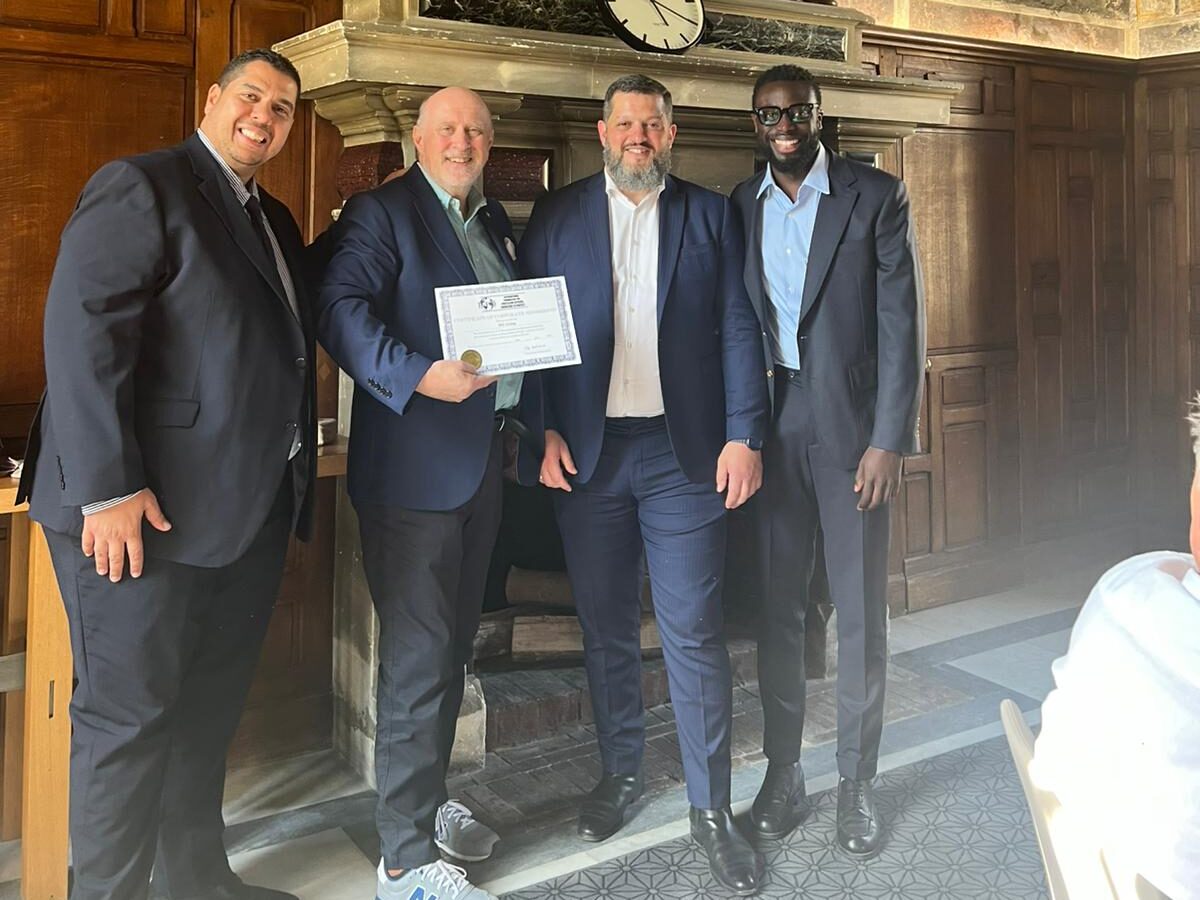Pictured: John Roddy, Chief Executive of The Shield Group
While other security companies may be moving into facilities management in the quest to improve margins, the Shield Group is heading in the other direction, broadening its security offering to include technological solutions.
It’s part of the company’s total security solutions (TSS) strategy and it’s this, says Chief Executive John Roddy, which distinguishes it from most of the other players in the top 10 security companies in the UK.
According to Infologue.com, which maintains a list of the top 25 guarding companies in the UK, the Shield Group is ranked 10th with an estimated 2.1% market share and reported 2013 turnover of £68m.
These figures place it well behind the top three players in the market – G4S, Securitas and Mitie – which together control nearly 50% of the regulated security market.
However, in Roddy’s view, many of the companies which are farther up the list than Shield ceased to be pure security providers when they decided to augment their service offering with non-security activities like cleaning and maintenance.
They have, he asserts, diluted their security offerings with a range of facilities management services, perhaps in an attempt to improve on the notoriously poor margins in manned guarding.
A tough road

Margins are the problem in manned guarding – always have been and most likely always will be. In a regulated industry, there’s not much to distinguish one manned guarding company from another apart from the quality of your management systems, a difficult sell to corporate procurement teams whose comprehension of manned guarding often doesn’t extend much beyond insurance requirements and billable hours.
Roddy has ambitious growth plans for the Shield Group. Having recorded a turnover of £72m in 2014, he aims to increase that organically to £81m in 2015 and £100m within two years. Within the current league tables, that would move his company from tenth to eighth place.
To achieve this, there are four well-trodden roads to increasing turnover in this business:
- Acquisition – he doesn’t rule out growing the business in this manner but that would be on top of his organic growth targets;
- Buying business – the industry is littered with the corpses of manned guarding companies who slashed their margins in an attempt to win business;
- Becoming an FM company – there’s huge demand for full service FM contracts (as witness the likes of G4S and Mitie) but Roddy says the Shield Group, with a long pedigree in security, is not interested in this route;
- Expanding your armoury – security is a broad field, with a demonstrable demand for equipment and services beyond just manned guarding.
It’s this latter solution that Roddy has been pursuing since he joined the Shield Group in 2012.

He was recruited by the chairman, Dr Richie Nanda, the Global Chairman of India’s largest security conglomerate, TOPSGRUP. TOPSGRUP purchased Shield in 2006. At the time, the company was purely a manned guarding provider focused very much on London and in particular the City of London where even today it enjoys the status of sole supplier of guarding services to the Corporation of London.
Since he acquired it, Nanda has added technology and consulting services to Shield’s portfolio and today it bills itself as the UK’s largest independent total security solutions company, providing a range of services to over 500 customers.
“From our chairman’s point of view, in 2012 he decided to shake up the management team and I was appointed to (a) grow the business, grow it organically and through acquisition and (b) look at the UK market with a view to introducing a total security solution provision,” Roddy says.
The management team at the time was overly focused on the London market and providing a manned guarding service.
“There were areas in the company that the management team didn’t realise the potential,” he says. “For example, we were a London-centric business, but actually we had a national UK footprint – it just wasn’t developed. It was created by London customers who wished to maintain that level of service and relationship with Shield management and awarded them contracts throughout the UK.”
And they weren’t realising the potential of broadening the company’s service provision.
“In 2005, the business had purchased a Category 2 monitoring centre in Preston with a view to moving into the technology sector but again appointed manned guarding personnel to develop it commercially and take advantage of its tech capabilities. What I quickly realised is that we had the framework for a total security solutions capability.”
So, over the past two-and-a-half years he has developed three main streams of the business which are people (still the mainstay of the business), technology and a catch-all category called specialist.
Evolving structure
On the people side, he rebranded the front of house reception service as First Impression and also launched a mobile response and key-holding service.

On the technology side, they already had the alarm receiving centre (ARC) and relationships with suppliers to install CCTV, alarms and other electronic security. He appointed a new managing director for systems and monitoring, Eric Roberts. A former managing director at ADT and before that at the Corps of Commissionaires in Glasgow, Roberts has driven significant growth and achieved good margins for the business.
With that side of the business going well, Roddy hints that it will soon acquire a systems integration company, “so we can self-deliver CCTV and associated services,” he says.
They are also offering specialist services, namely commercial investigations, corporate screening, electronic surveillance and counter measures, close protection, events management and outsourced police work through Shield Risk Solutions – a business that will be run by Ken Stewart, a former Detective Chief Superintendent at the City of London Police.

The company is clearly serious about developing its total security solutions offering but it’s still early days for this side of the business. Meanwhile, it continues to support facilities management companies with security and reception staff in unbranded uniforms.
And most of its people are still in the guarding division, which accounts for 92% of its 2800 staff. However, despite this dominance and the fact that it contributes the lion’s share of revenue to the business, the technology and specialists divisions are more profitable, he says.
He is eager to encourage more imaginative solutions to security, saying that in many cases the smart use of technology can save lots of money for clients by cutting down on the number of guards required.
However, technology is not always the solution – sometimes you just need to work smarter. He wants to encourage retail businesses to consider sharing resources, like a shared security manager, between stores. “If you have five stores in the same area, owned by different companies but suffering the same theft issues, they could share a loss prevention manager who would work across the stores,” he suggests.
Another growth area he sees is working with the police, providing services such as guarding crime scenes, low level CCTV monitoring and video review and taking statements for low-level crime. “There is a guarded reluctance to engage with the security companies, but with cuts, senior executive teams in the police will have to look at how they police in five to 10 years’ time. Confidence in security companies to provide capable people is growing,” he says.
The company that used to be a London focused manned guarding company is developing quickly. “In two and a half years you can see that our language has changed,” he says. “The landscape has changed for us really because two and a half years ago we were talking purely manned guarding – now, two and half years later we are talking about finding the right solutions for our customers.”
Links
www.theshieldgroup.com



















